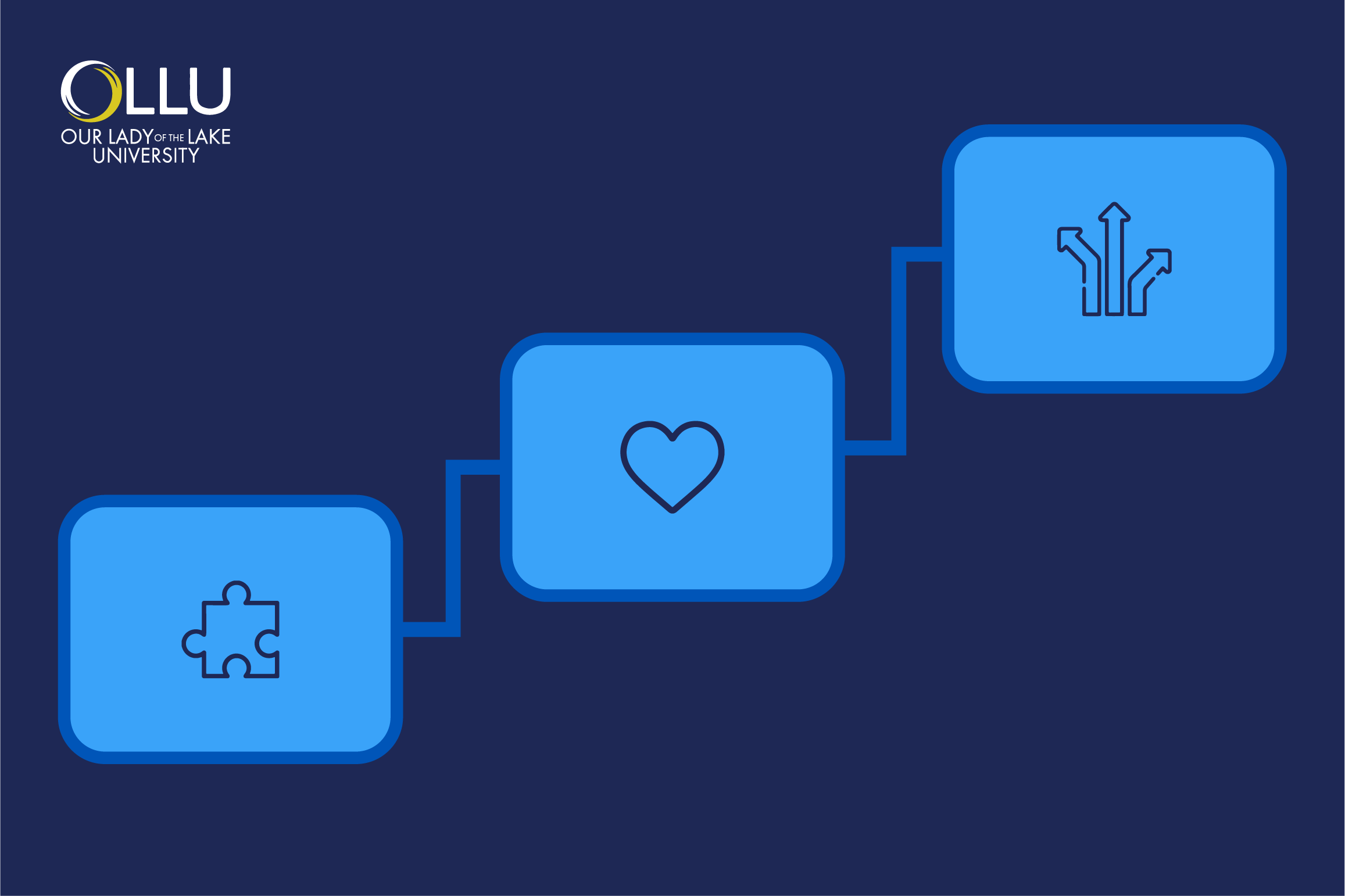How to Become a Mental Health Counselor: Steps and Tips
Jul 20, 2024

Becoming a mental health counselor is a deeply fulfilling career that is crucial to healthcare and community well-being. Mental health counselors provide essential support and guidance to individuals dealing with emotional, psychological, and behavioral issues, helping them achieve better mental health and quality of life. This guide provides a comprehensive guide on becoming a mental health counselor, detailing the educational requirements, necessary licensing and certifications, and the experience needed to enter this impactful profession. By following these steps and tips, aspiring mental health counselors can navigate their path to this rewarding career. Whether you're beginning your journey or considering a career shift, our guide will equip you with the crucial information needed to embark on a career in mental health counseling.
What Is a Mental Health Counselor?
Mental health counselors are licensed professionals who provide therapeutic services to individuals, families, and groups dealing with various emotional, psychological, and behavioral issues. They play a pivotal role in assessing clients' mental health needs, developing personalized treatment plans, and implementing therapeutic interventions to foster mental well-being. Daily responsibilities of a mental health counselor include:
- Conducting individual and group therapy sessions;
- Performing comprehensive assessments;
- Creating effective treatment strategies tailored to each client's unique circumstances.
A mental health counselor can work in different settings, such as private practice, hospitals, schools, and community agencies, offering their expertise to diverse populations. Whether in a clinical setting or a community environment, mental health counselors are dedicated to promoting mental health and supporting their clients in overcoming challenges.
Specializations in Mental Health Counseling
Mental health counseling offers a diverse range of specializations, allowing counselors to focus their expertise on specific areas of need. Common specializations include:
- Substance abuse counseling: involves helping individuals overcome addiction;
- Marriage and family therapy: addresses relational and family dynamics;
- School counseling: supports students' academic and emotional well-being;
- Trauma and crisis counseling: assists those affected by severe stress or traumatic events.
Specializing in a particular area enhances career opportunities and often leads to higher earnings and the ability to make a more targeted impact on specific client populations. By choosing a specialization, mental health counselors can align their practice with their passions and strengths, ultimately providing more effective and meaningful support to their clients.
How to Become a Mental Health Counselor?
Becoming a mental health counselor involves several key steps and pathways. Prospective counselors must first fulfill educational requirements, which often include obtaining a master's degree in mental health counseling or a related field. Afterward, they must acquire necessary licensing and certifications, often including passing a standardized exam. Acquiring hands-on experience through internships or supervised practice is crucial for honing professional skills. Networking with other professionals can provide valuable connections and job opportunities. Finally, applying for jobs in various settings marks the transition into a full-fledged career. Let's discuss each of these steps in more detail:
1. Educational requirements
To pursue a mental health counselor career, individuals must complete specific educational milestones. It typically begins with earning a bachelor's degree, ideally in fields such as psychology, social work, or human services, which provide foundational knowledge in human behavior and mental health. However, a bachelor's degree in any related field can also be a stepping stone. The crucial educational requirement for aspiring mental health counselors is obtaining a master's degree in mental health counseling or a closely related discipline. This advanced degree program focuses on specialized coursework, including counseling theories, ethics, assessment techniques, and human development. Additionally, students must complete supervised practicum or internship experiences, which provide hands-on training under the guidance of licensed professionals. These educational components are essential in preparing future mental health counselors to effectively support clients and navigate the complexities of mental health issues.
2. Licensing and certifications
Becoming a licensed mental health counselor requires completing specific steps and obtaining certifications that vary by state. State licensure typically involves:
- Achieving a master's degree in mental health counseling or a related field;
- Accruing supervised clinical experience;
- Passing a licensing exam such as the National Counselor Examination (NCE) or the National Clinical Mental Health Counseling Examination (NCMHCE).
Additionally, counselors may pursue national certifications like the National Certified Counselor (NCC) designation, demonstrating expertise and enhancing career prospects. Continuing education is crucial to maintaining licensure and staying current with advancements in counseling practices. State-specific requirements can differ, so aspiring counselors should research and adhere to the guidelines in their respective states. These certifications and licensure processes ensure that mental health counselors are well-equipped to provide effective and ethical care to their clients.
3. Experience
Gaining practical experience through supervised clinical settings, internships, and entry-level positions is crucial for aspiring mental health counselors. Post-graduate supervised experience provides hands-on training under the guidance of licensed professionals, allowing counselors to put theory into practice and develop crucial clinical skills. This experience also offers opportunities for specialization in areas such as substance abuse counseling, family therapy, or trauma counseling, preparing counselors to work with specific client populations and issues. Entry-level positions, such as counselor aides or case managers, provide valuable exposure to client care and treatment planning, paving the way for career advancement. Leveraging early work experience enables mental health counselors to build a strong foundation, establish professional networks, and explore diverse career pathways. This practical experience is instrumental in fostering competence, confidence, and professional growth in counseling.
4. Networking
For mental health counselors, establishing a professional network is vital for career advancement, providing opportunities for growth and support. Engaging with professionals in the field through platforms like the American Counseling Association (ACA) provides access to valuable resources, continuing education opportunities, and updates on industry trends. Joining professional associations enhances credibility and fosters connections with peers and mentors, providing opportunities for guidance and collaboration. Effective networking involves attending conferences, workshops, and local events related to mental health counseling, where counselors can exchange ideas, build relationships, and stay informed about advancements in the field. Networking extends to online platforms and social media, where counselors can participate in discussions, share insights, and connect with professionals globally. By actively networking, mental health counselors can expand their knowledge base, stay current with industry standards, and cultivate a supportive professional community to enhance their career journey.
5. Applying for jobs
Effectively searching and applying for mental health counselor positions requires careful planning and thorough preparation. Start by utilizing various job search strategies, including networking through professional associations like the American Counseling Association, exploring online job portals, job boards, and company websites, and leveraging university career services to identify relevant openings. Craft a compelling resume highlighting your education, relevant experience, certifications, and specialized skills in mental health counseling. Customize each resume to align with the specific job requirements and emphasize your dedication to supporting others.
Craft a cover letter that effectively complements your resume by illustrating how your background and abilities align with the position's needs, demonstrating your passion for mental health counseling. Prepare for interviews by researching the prospective organization, anticipating common questions about counseling methods, ethical challenges, and experience working with diverse client populations. Dress professionally, bring necessary documents, such as copies of your resume and certifications, and send a thank-you email or letter afterward to show appreciation and reaffirm your interest in the role. Attention to application details and prompt follow-ups after interviews will showcase your enthusiasm and professionalism, ultimately enhancing your prospects of securing a fulfilling career as a mental health counselor.
Mental Health Counselor Skills
Effective mental health counseling relies on a broad array of skills that facilitate clients' understanding, support, and guidance. Foundational interpersonal skills such as empathy, active listening, and clear communication enable counselors to establish rapport, empathize with clients' experiences, and cultivate meaningful therapeutic relationships. These skills are complemented by analytical abilities like problem-solving, critical thinking, and decision-making, which are crucial for evaluating complex situations, identifying underlying issues, and devising tailored treatment plans that meet individual needs. Additionally, professional competencies such as ethical practice, meticulous documentation, and efficient time management ensure counselors maintain ethical standards, manage client information effectively, and optimize session outcomes.
Continuously improving these skills involves ongoing practice, self-reflection, and professional development. Counselors can enhance their capabilities through participation in workshops, engaging in peer supervision, and pursuing continuing education to stay abreast of emerging best practices in the field. In practice, these skills manifest in diverse scenarios, such as providing empathetic support during emotional crises, employing critical thinking to accurately diagnose mental health conditions, and adhering to ethical principles in all decision-making processes. By consistently refining these skills, mental health counselors can adeptly address the varied needs of their clients and achieve positive therapeutic outcomes.

Salary and Job Outlook
The future looks bright for mental health counselors, with strong demand anticipated to fuel considerable growth. According to the Bureau of Labor Statistics (BLS), employment for substance abuse, behavioral disorder, and mental health counselors is projected to increase by 18% from 2022 to 2032. This growth reflects increasing recognition of the importance of mental health services across various sectors. As of May 2023, substance abuse, behavioral disorder, and mental health counselors had a median annual wage of $53,710. Salaries can differ depending on geographic location, experience, specialization, and the particular employment setting. Mental health counselors find employment opportunities in diverse settings, including hospitals, clinics, schools, community health centers, and private practice. The expanding need for mental health services underscores robust career prospects for aspiring counselors entering the field.
Conclusion
In summary, becoming a mental health counselor involves pursuing education, gaining experience, and obtaining licensure to make a meaningful difference in clients' lives. This fulfilling career offers the opportunity to support others through challenges and foster positive mental health outcomes. If you're passionate about mental health counseling, take the next step by researching educational programs and exploring practical training opportunities to embark on this rewarding career path.
Frequently Asked Questions
Is mental health counseling a good career?
Mental health counseling can be a profoundly rewarding career for those passionate about helping others overcome mental health challenges and improve their well-being through therapeutic interventions.
How long does it take to become a mental health counselor?
Becoming a mental health counselor typically requires completing a bachelor's degree (4 years) and a master's degree (2-3 years), totaling around 6-7 years of education and supervised experience.
How much do mental health counselors make?
The salary for mental health counselors can fluctuate due to factors such as location, experience, and setting. However, it generally ranges from $40,000 to $70,000 annually.
What is the difference between a mental health counselor and a therapist?
The primary distinction lies in their training and focus: mental health counselors often work with specific populations on daily life issues, while therapists may have broader training and focus on deeper psychological issues or specific therapeutic modalities.